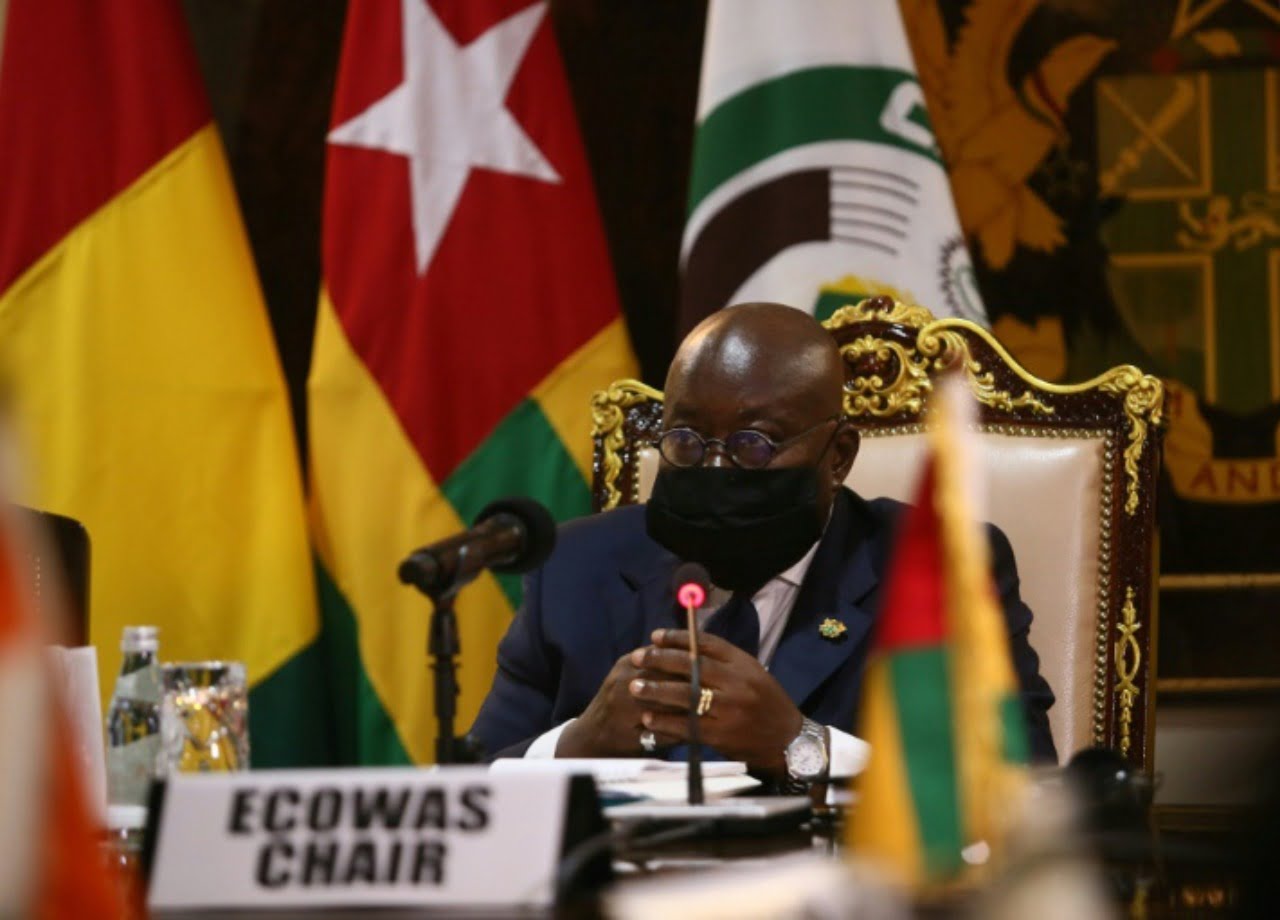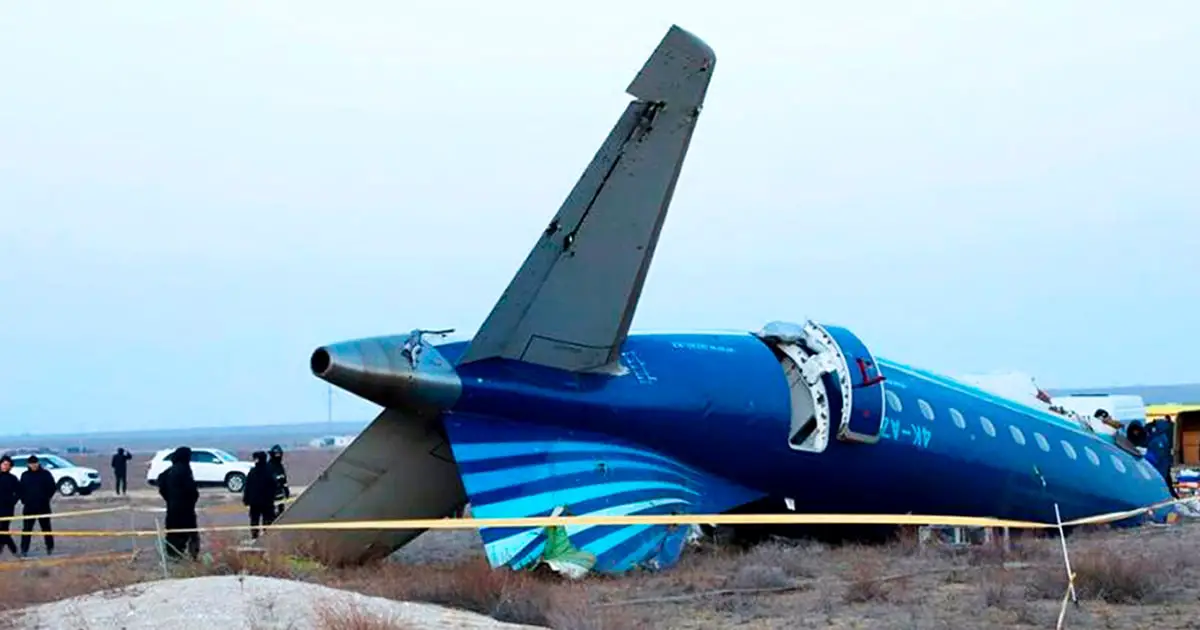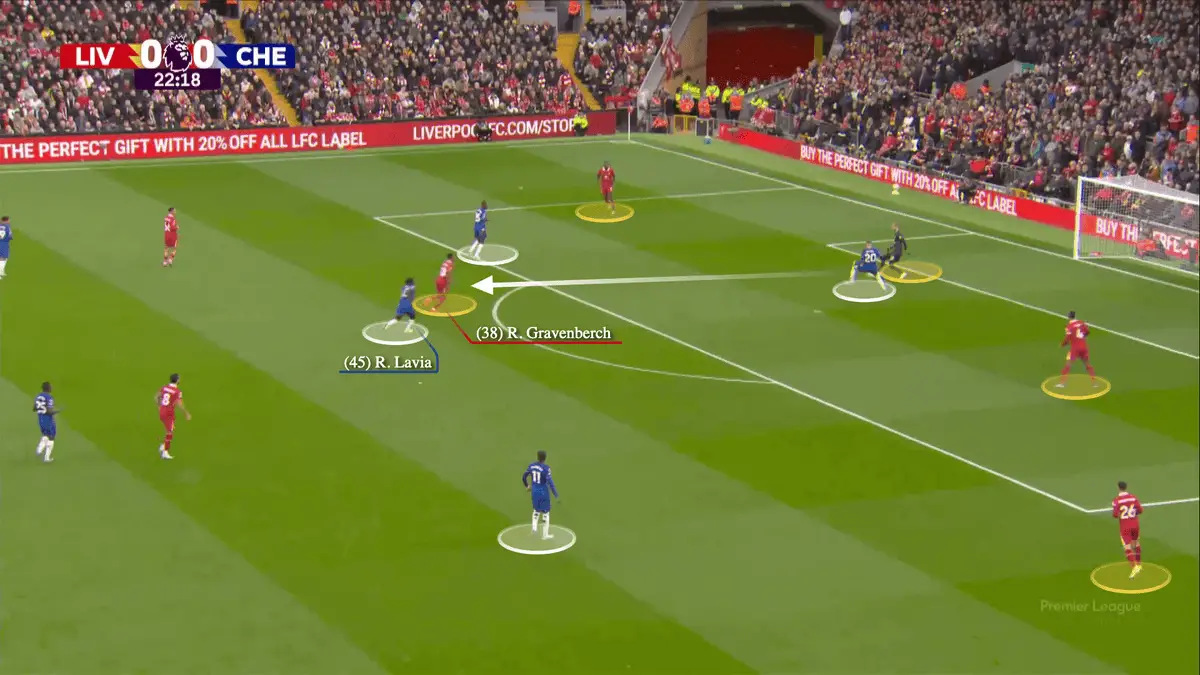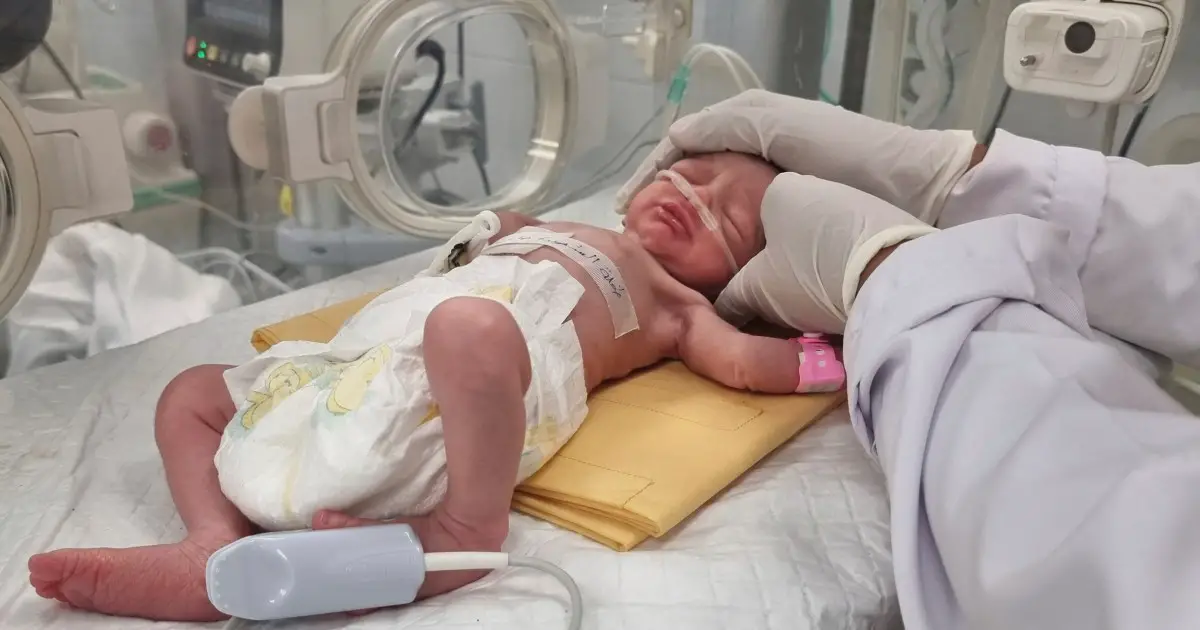
Sabreen Alrouh Jouda was born an orphan.
During a barrage of intense Israeli airstrikes on the southern Gaza city of Rafah this weekend, one blast hit the family home into which Sabreen would have been welcomed, according to local health officials, hospital staff and family members. The blast killed her mother, Sabreen Sakani — who was 30 weeks pregnant with her at the time — as well as her father, Shukri Joudah, and her 3-year-old sister she never got to meet, Malak.
The family was declared dead at the city’s Kuwaiti Hospital on Saturday, but NBC News’ cameras captured the moment doctors were able to perform a posthumous cesarean section and rescue Sabreen from her mother’s lifeless body.
Limp and lifeless at first, the vernix-covered newborn weighing just over 3 pounds was taken in a golden fabric blanket and rushed to an upstairs room. There, doctors tried for more than two minutes to resuscitate her by pumping air into her mouth and tapping her chest. They were finally, somehow, successful.
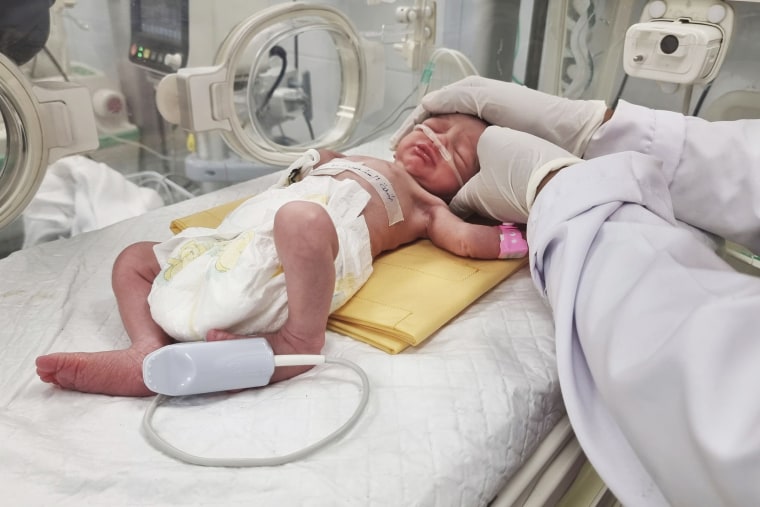
From there, she was immediately rushed by ambulance through the night to an intensive care unit incubator at the nearby Emirati Hospital, audibly whimpering on arrival. It was there that her paternal grandmother and uncle paid her an emotional visit, accompanied by NBC News, on Monday.“I don’t know if we should be happy that she came to life or sad,” said her uncle Rami Joudah, 25, weighing what should have been the joy of Sabreen’s arrival with the deaths of his brother and sister-in-law, who were just 29 and 27 years old. “Our lives are messy.”
The newborn’s grandmother Alham Al-Kurdi, 55, wept as she reached into the incubator.
“You are my soul, my heart. You are my heart, baby,” she said, tears rolling over her freckled cheeks, her wrinkled hand caressing the infant’s tissue-paper skin as machines chirped around her. “You are my beloved one. God willing, God willing. She is inside my heart.”
It was difficult to get a clear view of Sabreen’s tiny, preterm form through the thick plastic of the incubator keeping her alive. As she was lying swaddled in tubes and wires, those lifelines provided oxygen to her underdeveloped lungs and monitored her fragile pulse. Beneath the technology keeping her alive — a rarity in Gaza where many hospitals have been destroyed by six months of war — her ribs continued to rise and fall.
Though a remarkable vignette, this family has been devastated like so many others in the enclave.
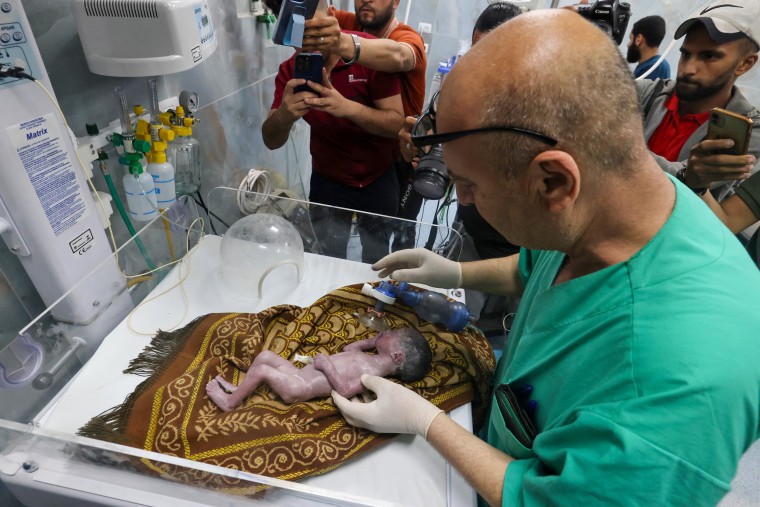
More than 34,000 people, including some 13,000 children, have been killed since Israel launched its military campaign following the Hamas-led attack on Oct. 7, according to the Palestinian enclave’s Health Ministry. That toll only looks set to rise as Israel focuses its military might on Rafah, Gaza’s southernmost city that sits on the border with Egypt.It’s here where some 1.5 million Palestinians have fled, now sheltering in tents and on the streets.
Nevertheless, Israel says it must strike Rafah because Hamas leaders and units are hiding out there. The United States and others have warned Israel against a long telegraphed, full-scale ground assault of the city, given the already desperate civilian population that has been caught up in the fighting.
Bombing this weekend alone killed 26 children across three families in the city, according to Health Ministry figures compiled by NBC News. Palestinians say that so-called safe zones designated by Israel are a myth, with people directed to move into areas that have been subsequently bombed anyway.
“There are no safe places at all, they are liars, liars,” Rami Joudah said. “There is no safe place in Gaza. We are all living under the menace of death.”
The Israel Defense Forces did not immediately respond to a request for comment from NBC News about the strike that killed Sabreen’s family.The hospital that treated her is only one of three still providing maternal care for Gaza’s 2.3 million population, and 180 women a day are giving birth in “inhumane, unimaginable conditions,” according to an update from the United Nations Population Fund last week.
“Every day we have a sad story; every day we have a horrible story,” said Dr. Muhammad Salama, head of the emergency neonatal department in the Emirati Hospital, who is treating baby Sabreen.
He gestures to other infants under his care. “This baby right here, his father has died. This baby’s mother has died. Another two babies in the ICU, one of them came and we cannot know, sadly, if his mother or father is alive.”
This takes its toll not just on the families, but also on the medical workers themselves.
“All medical staff are really tired from these cases, which take a lot of energy physically and psychologically, because we are dealing with babies who were born without mothers and fathers,” Salama said. “We are exhausted and, physically, we cannot take any more like this.”
Sabreen, at least, is getting stronger every day, he said. But she is by no means safe.
Because she was born almost two months prematurely, her lungs had not formed properly and she arrived with something called respiratory distress syndrome. Her immune system is weak and her digestive system is having trouble coping with milk or formula, he said, adding that her recovery could take three to four weeks.

